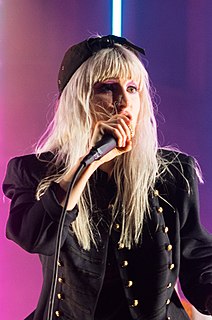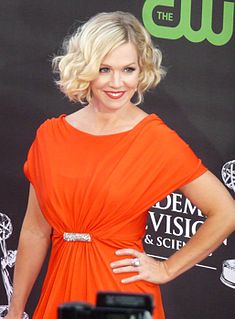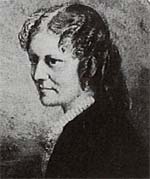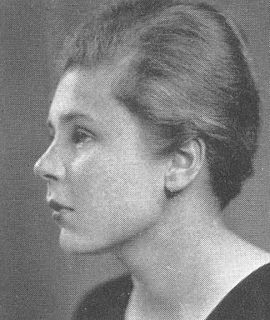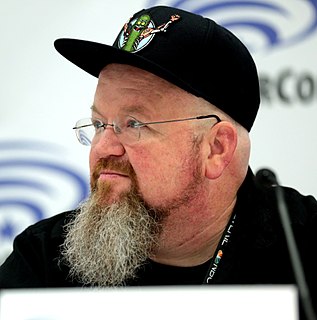A Quote by Robert Frost
Keats mourned that the rainbow, which as a boy had been for him a magic thing, had lost its glory because the physicists had found it resulted merely from the refraction of the sunlight by the raindrops. Yet knowledge of its causation could not spoil the rainbow for me. I am sure that it is not given to man to be omniscient. There will always be something left to know, something to excite the imagination of the poet and those attuned to the great world in which they live (p. 64)
Related Quotes
Now when I had mastered the language of this water, and had come to know every trifling feature that bordered the great river as familiarly as I knew the letters of the alphabet, I had made a valuable acquisition. But I had lost something, too. I had lost something which could never be restored me while I lived. All the grace, the beauty, the poetry, had gone out of the majestic river!
When the sunlight strikes raindrops in the air, they act like a prism and form a rainbow. The rainbow is a division of white light into many beautiful colors. These take the shape of a long round arch, with it’s path high above, and it’s two ends apparently beyond the horizon. There is, according to legend, a boiling pot of a gold at one end. People look, but no one ever finds it. When a man looks for something beyond his reach, his friends say he is looking for the pot of gold at the end of the rainbow.
No theory changes what it is a theory about. Nothing is changed because we look at it, talk about it, or analyze it in a new way. Keats drank confusion to Newton for analyzing the rainbow, but the rainbow remained as beautiful as ever and became for many even more beautiful. Man has not changed because we look at him, talk about him, and analyze him scientifically. ... What does change is our chance of doing something about the subject of a theory. Newton's analysis of the light in a rainbow was a step in the direction of the laser.
It was only my second night in Africa, yet something had begun to grow inside me which I could not stop, as if my childhood dreams had finally found the place where they could materialize. I had arrived where I was always meant to be. I did not know how it could be practically achieved, but I was certain beyond any shadow of a doubt that it was here that I wanted to live.
They told me that I had a leaky valve, which is something that is certainly not life-threatening. It's common and it's something that had I not known about it, would I have lived? Sure. But it's something that I think is important to know, especially as I get older and given that I have heart disease in my family.
The end of man is knowledge, but there is one thing he can't know. He can't know whether knowledge will save him or kill him. He will be killed, all right, but he can't know whether he is killed because of the knowledge which he has got or because of the knowledge which he hasn't got and which if he had it, would save him.
I feel very strongly that I am under the influence of things or questions which were left incomplete and unanswered by my parents and grandparents and more distant ancestors. It often seems as if there were an impersonal karma within a family which is passed on from parents to children. It has always seemed to me that I had to answer questions which fate had posed to my forefathers, and which had not yet been answered, or as if I had to complete, or perhaps continue, things which previous ages had left unfinished.
It would perhaps not be amiss to point out that he had always tried to be a good dog. He had tried to do all the things his MAN and his WOMAN, and most of all his BOY, had asked or expected of him. He would have died for them, if that had been required. He had never wanted to kill anybody. He had been struck by something, possibly destiny, or fate, or only a degenerative nerve disease called rabies. Free will was not a factor.
The available worlds looked pretty grim. They had little to offer him because he had little to offer them. He had been extremely chastened to realize that although he originally came from a world which had cars and computers and ballet and Armagnac, he didn't, by himself, know how any of it worked. He couldn't do it. Left to his own devices he couldn't build a toaster. He could just about make a sandwich and that was it.
There were times when it appeared to Dorian Gray that the whole of history was merely the record of his own life, not as he had lived it in act and circumstand, but as his imagination had created it for him, as it had been in his brain and in his passions. He felt that he had known them all, those strange terrible figures that had passed across the stage of the world and made sin so marvellous, and evil so full of subtlety. It seemed to him that in some mysterious way their lives had been his own.
I hated the mountains and the hills, the rivers and the rain. I hated the sunsets of whatever colour, I hated its beauty and its magic and the secret I would never know. I hated its indifference and the cruelty which was part of its loveliness. Above all I hated her. For she belonged to the magic and the loveliness. She had left me thirsty and all my life would be thirst and longing for what I had lost before I found it.
I caught a tremendous fish
and held him beside the boat
half out of water, with my hook
fast in a corner of his mouth.
He didn't fight.
. . . . . . . . . . . . . . . . . . . . . . . . .
I stared and stared
and victory filled up
the little rented boat
from the pool of bilge
where oil had spread a rainbow
around the rusted engine
to the bailer rusted orange,
the sun-cracked thwarts
the oarlocks on their strings,
the gunnels-until everything
was rainbow, rainbow, rainbow!
And I let the fish go.
Perhaps he had to be close in order to keep a reason for the things he did. To make the things he did be themselves Life. And not merely a delightful exercise of technical skill which man had been able to achieve because he, of all the animals, had a fine thumb. Which is nonsense, for whatever you live is Life.


